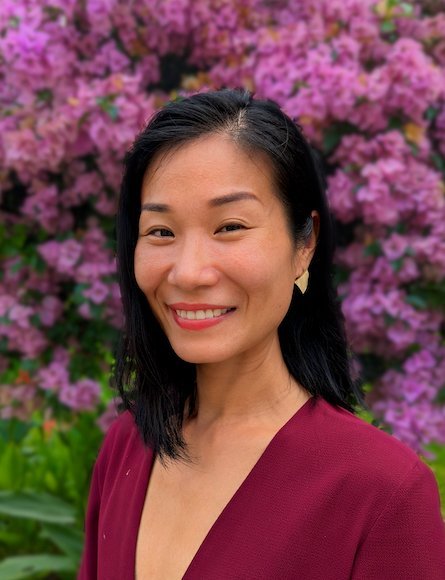The Perfect Year-End Gift to Yourself: A Self-Authoring Program
by Shifan Hu-Couble
Counsellor / Psychotherapist / Parenting Coach
The Perfect Year-End Gift to Yourself: A Self-Authoring Program
It is the time of the year again, a transition from the old to the new, the past to the future, and the reflection to the forward-looking.
Here is an idea of a perfect gift for bridging the gap – a self-authoring program engineered by three doctors: Jordan B. Peterson, Daniel M. Higgins, and Robert O. Pihl. Jordan Peterson needs no introduction. Daniel Higgins has experience in psychology and software development, with a research emphasis on how thought processes affect the workplace. Robert Pihl is a professor of psychology at McGill University and has received several prestigious awards for his work.
The Self-Authoring Program facilitates a process of reflection, introspection, consolidation of understanding of self, and strategizing an ideal future by your own accord. The program is predicated on the belief that people who spend time writing about themselves become happier, less anxious and depressed and physically healthier. As a clinician, I observe a primary cause of mental struggles as a lack of understanding of self which often manifests in one’s internal conflicts, self-loathing, low self-esteem and confidence.
The Self-Authoring Program has three sections, and I will go into detail for each section in the following paragraphs.
1. Present authoring
This section has two modules: faults and virtues. The first helps you understand and rectify your personality faults. The second helps you understand and develop your personality virtues. The key to gaining valuable insight from this section is to be brutally honest with yourself. The usefulness of the program is a function of the accuracy of your data input.
2. Past authoring
This section directs you to divide your life into various epochs. We are who we are today because of what has happened to us thus far. I sometimes encounter clients in my practice who demand no digging from the past: “I only need your help to address my present issues. I do not want to talk about my past.” This avoidance of confronting one’s past in itself is a form of maladaptation. Carl Jung admonished: “What we want most can be found where we least want to look.” This section facilitates a process of remembering, articulating and analysing pivotal life experiences: events that established your current belief and value systems.
3. Future authoring
According to Jordan Peterson, fear is a much bigger motivation than reward. In his words: “You can be afraid of pursuing the things you want to pursue – that’s very common. But it makes you weak. You want to get your fear behind you, pushing you. You want to be more afraid of not pursuing your goals than you are of pursuing them.” This section is three-fold. Firstly, you will write about your ideal future for 15 minutes – how life could turn out if you do everything right. Secondly, you will write about the worst-case scenario for an equal amount of time – how life could turn out if you choose to avoid, deny, and deceit. Thirdly, you break down your vision of an ideal future into specific goals – translating a vision into smaller and attainable goals. For example, you might envision a fulfilling spousal relationship, which manifests in effective communication, which requires accurate listening skills. Now your starting point would be to learn how to listen effectively, which is one of many components necessary for fulfilling a relationship. When you are done with future authoring, hopefully you will be enlightened with a detailed and implementable plan.
Additional Suggestions
Get an accountability buddy
The website offers a two-for-one deal. This makes the process more fun, relatable and accountable. You can do it with a friend, a family member, or a partner. You can talk about each section as you go through them and compare notes.
Set a realistic timeline for completion
It can be a week, a month or even three months. The program takes a lot of thinking and writing. If journaling is not something you are familiar with, it might feel hard to finish it in one go. Start with a couple of questions to gauge a comfortable pace for yourself and then set a realistic goal for yourself to complete the program.
Extract the actionable items from the program after completion
Throughout the self-authoring program, you will gain valuable insight into your past, your personality, and your values and belief system. This is only information. Information is not enough to effect meaningful change. You would need concrete action items. Make a list of all actions deduced from completing this writing program and follow it through.
Do some preperation
It is useful to understand the Big Five personality traits model as it is the theoretical framework of the Self- Authoring Program.
This program draws on the benefits of expressive writing and goal setting in improving one’s mental health, cognitive capacity, and performance which is supported by a solid body of research. It breaks down a massive task into manageable pieces with simple questions to be answered at your convenience. It crystallises your thoughts and reflects them to you in words. This is a perfect tool to examine your life so far, take inventory, make sense of your life experiences, understand where you are and plan a future which is in line with your values.
About the author
Shifan is an experienced counsellor, parenting coach and psychotherapist at The Counselling Place Singapore. With expertise in trauma and parenting issues, she supports clients in English, Mandarin, and Cantonese.
Shifan integrates talk therapy with body-based modalities like EMDR and Somatic Experiencing. Her unique blend of corporate and therapeutic experience empowers individuals, couples, and parents to navigate cross-cultural relationships, heal childhood trauma, and foster secure attachments.




